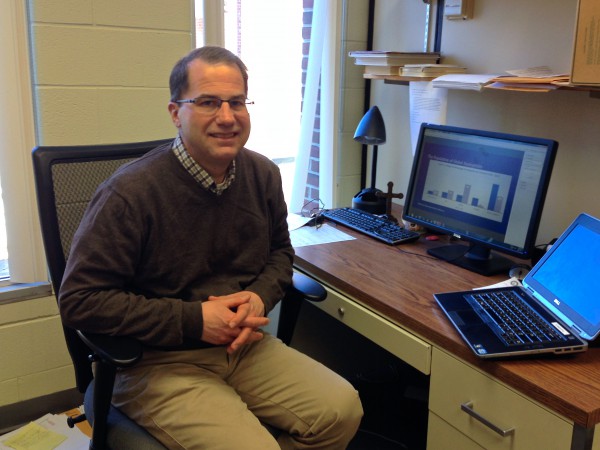Almost two years ago Dr. Conrad Kanagy, Elizabethtown College professor of sociology, began research on global Mennonites with data gathered from 18 countries and 22 church conferences. His research concludes just in time for the Mennonite World Conference held in Harrisburg this July.
The conference, a reunion of the Anabaptist-Mennonite worldwide family, is held every six years in a different country. The research being prepared for this gathering is a larger sample than similar research Kanagy conducted on Mennonites from 2008 to 2010. It consists of survey questions pertaining to Mennonite attitudes on topics including homosexuality, the Bible, Jesus, the Holy Spirit and war. Churches from Europe, Latin America, Asia, Africa, Canada and the Unites States participated.
To collect the data for this project, Kanagy collaborated with a research partner in each church in each country. Everyone who participated in this project meets at Elizabethtown College in late July to talk about what was learned from the research and to present a summary of his or her findings. Kanagy will give an overview of the total group to evaluate differences and similarities.
… our interest is understanding how the church is changing and what it might look like in the future.”
Kanagy, who also is a pastor at the Elizabethtown Mennonite Church, is interested in learning what the future holds for Mennonites. Today the average Mennonite is much more likely to be of African, Asian or Latin American rather than of German or Swiss descent. “This is creating a really different type of church globally for Mennonites,” said Kanagy. “So our interest is understanding how the church is changing and what it might look like in the future.”
For the last 30 to 40 years, the dominant paradigm has argued that religion, specifically Christianity, is disappearing.. One of the mostly rapidly growing groups is made up of those who are actually not religious. “What is intriguing to me is why is Christianity declining in the West but on such an upward trajectory in the Global South?” questioned Kanagy. “In some ways we would expect that if the decline is because of modernity, than as the Global South becomes modernized religion would decline there too, but we are not finding that that’s the case.”
Today, there are many more Mennonites outside North America and Europe, with Africa having the greatest population. Up until the last 10 years many researchers have ignored the huge growth taking place in the Global South over the last two decades. “It is interesting that Islam is growing maybe slightly more rapidly than Christianity, so you have these two global world religions that have often been in conflict growing very rapidly in the Global South,” said Kanagy. “Will these two different religions find ways to live together or is it going to lead to increasing conflict?”
Whether students are religious or not, the topic of religion is important to discuss.
“Part of the problem with the decline of religion in North America and Europe is that we start to assume that religion isn’t important elsewhere in the world either and that’s just not true,” said Kanagy. “I think it is also really important for Elizabethtown College, where we are emphasizing a global perspective, for students to be aware of what is going on in the world and to know how religion is impacting globalization.”


